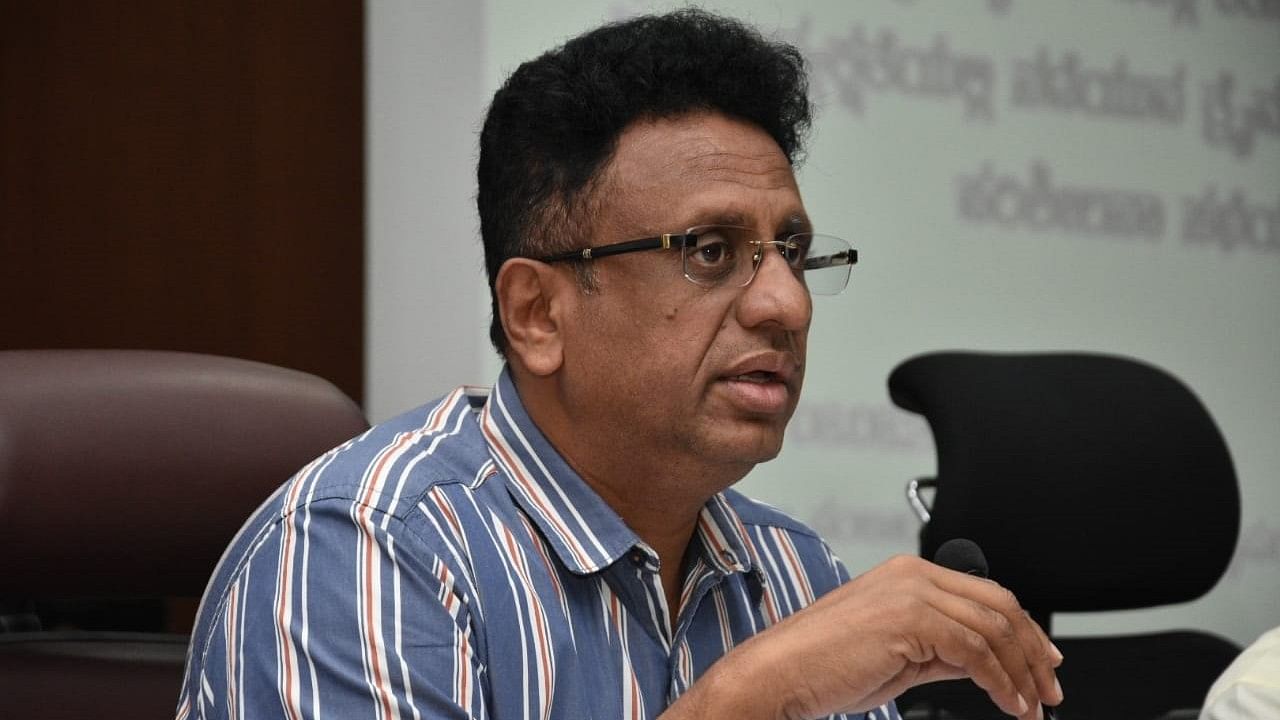
As controversy over NEET rages across the country, Congress-ruled Karnataka is thinking of following Tamil Nadu’s footsteps by waging a legal battle to seek exemption from the all-India test. But Higher Education Minister Dr M C Sudhakar tells DH’s Rashmi Belur that having a state-level medical entrance exam will require the Supreme Court’s nod. He also talks about the future of CET. Excerpts:
Given the NEET controversy, what’s your take on a separate state-level entrance test for medical courses?
The NEET development is very shocking. None of us anticipated a paper leak or such malpractice. Investigation should reveal the truth. NEET was introduced mainly because of a Supreme Court direction. Tamil Nadu is opposing it from Day One. But till the Supreme Court permits, none of the states can start its own test. We can object, but we don’t have the powers to conduct our own exam.
Will the delay in NEET process affect CET schedule for other courses?
Though there are no restrictions on conducting counseling, we’re worried as investigation into NEET irregularities is revealing fresh cases every day. We are concerned about the possibility of the exam being nullified. Our entire process for counselling will be disturbed because of the NEET issue. We’re preparing a plan ‘B’. We’ll soon discuss the plan with the chief minister to avoid derailment of the entire process.
Even KCET ran into controversy this year.
In the case of KCET, it was not a malpractice. It was an issue over out-of-syllabus questions. To streamline the system, we’re introducing artificial intelligence, facial recognition and biometrics in competitive exams.
There are reports that the government is planning to amend the Karnataka State Universities Act.
Yes, we’re discussing on amending the Act. We need to bring in accountability even for vice-chancellors, while improving the quality of the Syndicate and functioning of universities.
Why haven’t recruitment orders been issued to 1,200 assistant professors?
The verification of all the candidates is over. But, 32 people moved court over the issue related to Article 371(J) and got a stay order. The case is coming up for hearing on July 7. We hope to get the stay vacated and complete the process. Meanwhile, we have submitted a proposal for 6,000 sanctioned teaching posts in government-run degree, engineering and polytechnic colleges.
Does the freeze on recruitment at universities continue?
Following requests from universities and their struggle due to the lack of regular teachers, we have slowly started the (recruitment) process. Recently, recruitment was done in Raichur university. For universities whose statutes have been approved by the Governor and chancellor, we are forwarding recruitment proposals to the finance department. Recruitment will be done through an entrance test.
What about seven universities, started by the previous BJP government, which you’ve described as a burden?
Each university needs Rs 340 crore over five years. The issue was recently discussed in the Cabinet and a sub-committee has been constituted to study public universities. The committee will be headed by Deputy Chief Minister D K Shivakumar. Our Cabinet colleagues highlighted that some universities don’t have funds even to pay pensions. Considering all such issues, the committee will visit, study the universities and submit a report.
What about CSR funds?
The department of school education has taken the initiative on CSR funds ambitiously. We have also decided to approach corporates. Our intention is to improve the quality of education, instead of focusing only on infrastructure such as construction of buildings. I have directed officials to submit a report as to how different private colleges are from government colleges.
Is there any plan to cap the number of engineering seats?
We have no option, but approve seats sanctioned by the regulatory body (AICTE). We cannot come out of the clutches of the regulatory bodies. My opinion is, such bodies must assess the scenario before approving an unlimited increase in the number of admissions.